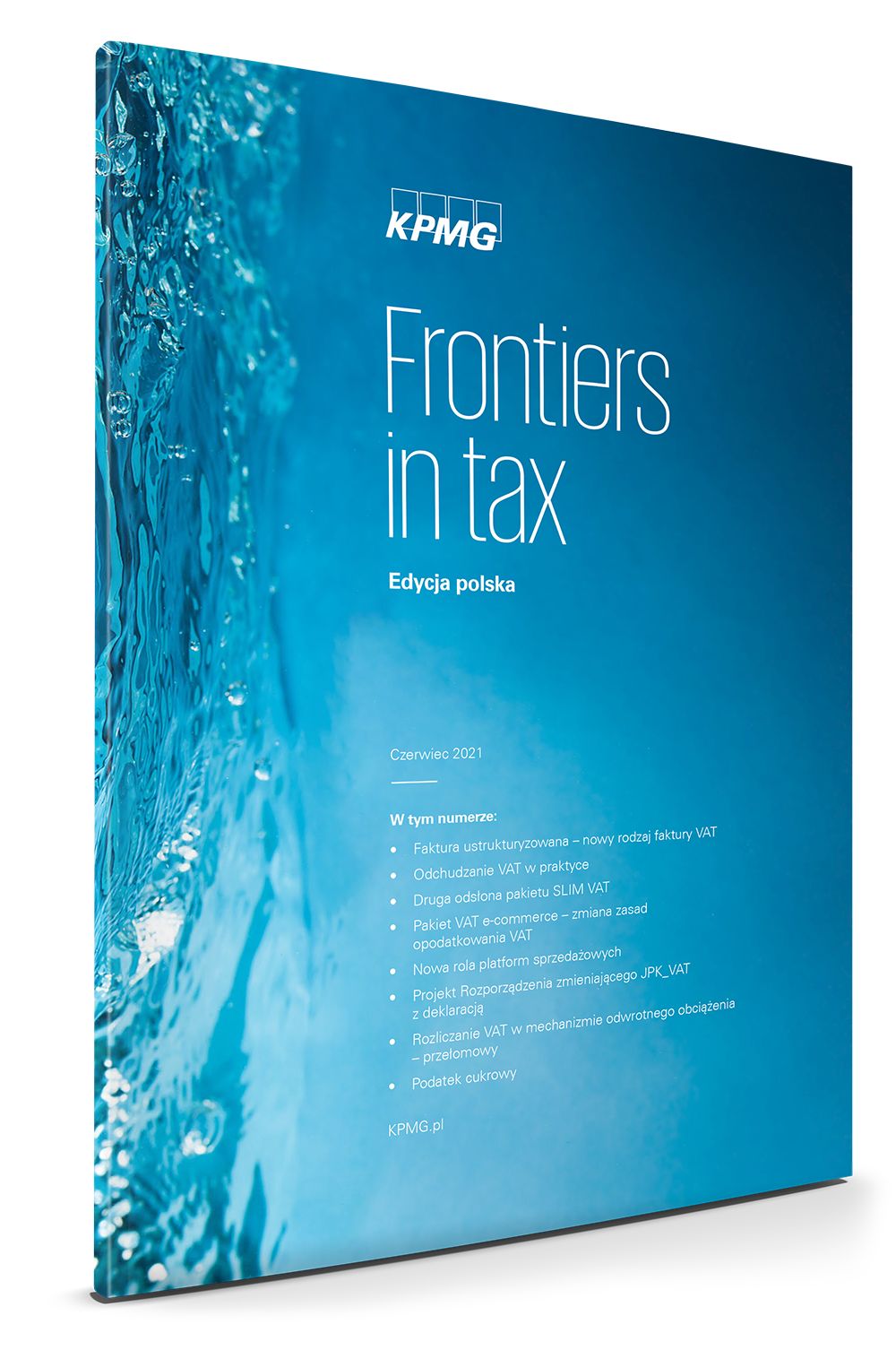In its judgment of 18 March 2021, the Court of Justice of the European Union (CJEU) confirmed that the provisions of the EU VAT Directive are to be interpreted as precluding national legislation which makes the exercise of a taxable person’s right to deduct input tax in the same accounting period as that in which the tax due was payable on the transaction subject to the tax due on those transactions being entered in the appropriate tax declaration submitted within three months following the end of the month in which the tax liability arose in relation to the goods acquired.
Polish regulations
In Poland, under the existing regulatory framework applicable as of 1 January 2017, taxable persons are required to declare reverse charge transactions (meaning intra-Community acquisitions of goods, import of services, delivery of goods and provision of services for which the purchaser is the taxpayer) in a specified taxable period, within 3 months from the end of the month in which the tax liability for a given transaction arose. Failure to fulfil this duty results in forfeit of the taxable person’s right to deduct VAT in the period in which the liability arose. In such a situation, the taxable person may deduct input VAT on an ongoing basis, once they adjusted the tax declaration for the period in which the right to deduct the tax due arose (the input tax due on the given transaction is included in the accounting period in respect of which the period for submitting a tax declaration has not yet expired). This results in infringing the principle of neutrality in VAT settlements for transactions to which the reverse charge mechanism is applied, which often has a negative financial impact, meaning imposition of interest on tax arrears (reporting output VAT retroactively increases the tax liability for a given period, which must be settled with interest, or through reduction of the excess input tax, which, if paid to the taxable person as part of the VAT refund, must also be returned by the taxpayer with interest). Such consequences are given rise to both by late settlement of transactions due to taxpayer's negligence, as well as incorrect classification of transactions, incorrect determination of the reporting date or delayed reception of invoice from the seller.
From the very beginning, the discussed provisions have caused much controversy, resulting in numerous disputes between taxpayers and tax authorities. In fact, the jurisprudence of regional administrative courts (RAC) in this regard has been based on two contradictory lines of interpretation, out of which the former is that the said provisions are not compatible with the EU law and as such should not be applied, while the latter is that they should be applied without any hindrance. Ultimately, the RAC in Gliwice, conducting proceedings with the participation of KPMG, referred the matter to the Court of Justice of the European Union for a preliminary ruling.
CJEU’s judgment
CJEU stressed that in the context of the reverse charge procedure, the fundamental principle of VAT neutrality requires deduction of input tax to be allowed if the substantive requirements are satisfied, even if the taxable person has failed to comply with some of the formal requirements. The right of deduction is generally exercised during the same period as that during which the tax has become chargeable. It is not necessarily dependent on obtaining an invoice, submitting a tax declaration, and calculating the VAT due on such an acquisition within a specific period. It would be contrary to the principle of neutrality to impose even temporarily on the taxable person the burden of the VAT due in respect of activity under the reverse charge procedure, all the more so since no amount is payable to the tax authority in relation to such an activity (provided that the taxable person’s right to deduct VAT is not limited for any other reasons).
Implications for taxpayers
CJEU’s judgment holding that the Polish VAT regulations were incompatible with the EU VAT Directive means that the provisions in question may not be longer applied. This relates to both VAT settlements made after the announcement of the CJEU’s judgment and those made in the past, from the moment the challenged provisions entered into force. It should be stressed that even though CJEU’s judgment pertains directly to Article 86(10b)(2)(b)) of the Polish VAT Act, which relates to settlements made in relation to intra-Community acquisition of goods, the Court’s findings and the fact that the provisions on import of services and domestic transactions for which the purchaser is the taxpayer have virtually the same wording make us believe that the judgment may be applied also to other types of transactions subject to the reverse charge mechanism. Importantly, the correctness of this approach has been confirmed by the recent judgments of administrative courts issued after the publication of the CJEU ruling, and indirectly also by the legislator itself, since it has already announced a draft amendment to the VAT Act, repealing controversial regulations with regard to all transactions.
This means that taxpayers may now (without waiting for the provisions to be amended) report reverse charge transaction in a neutral manner, regardless of the period in which the adjustment to the declaration has been made (of course, they should still report them in the period in which the tax liability arose). Importantly, taxpayers may now adjust their past settlements and reverse the consequences of non-neutral reporting for this type of transactions, including the recovery of interest paid. An additional incentive may be the fact that unduly paid interest is treated as overpayment subject to interest, i.e. taxpayers are entitled to receive interest on the penalty interest they paid to the tax office (the period of its calculation depends on whether or not the application for reimbursement was submitted within 30 days from the publication of the CJEU's judgment, i.e. by 9 June 2021).
Author:
Marek Bielawski, Senior Tax Manager, Indirect Tax Services, KPMG in Poland
Frontiers in tax. Polish edition | June 2021

This issue of the Magazine explores the key VAT-related changes, including introduction of a new type of e-invoice, commonly referred to as structured invoice, the SLIM VAT package, the VAT e-Commerce package, along with the latest developments related to the sugar tax.
In this issue:
- Introduction – Tomasz Bełdyga
- Structured invoice: a new VAT invoicing scheme – Łukasz Daniek
- VAT-slimming in practice – Tomasz Piotrowski
- The next edition of the SLIM VAT package – Natalia Kłoś, Patryk Roratowski
- The VAT E-Commerce Package: VAT Changes for B2C Trade– Izabela Jędra, Kamil Chmielewski
- VAT E-Commerce Package: Marketplaces and the new roles they are about to assume – Izabela Jędra, Kamil Chmielewski
- A draft Decree on amending the extended SAF_T file (JPK_VAT) – Izabela Jędra, Kamil Chmielewski
- Reverse charge on VAT: a landmark ruling of CJEU – Marek Bielawski
- Sugar tax – Zbigniew Sobecki, Rafał Roczniak
| Please login or register to download the PDF file |
|---|




